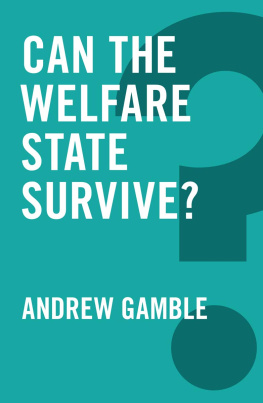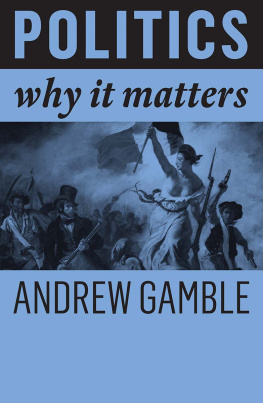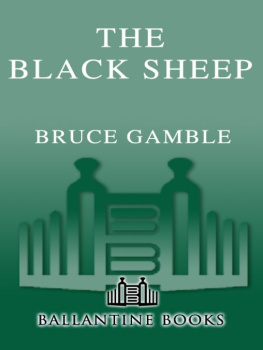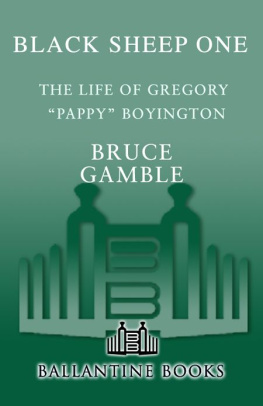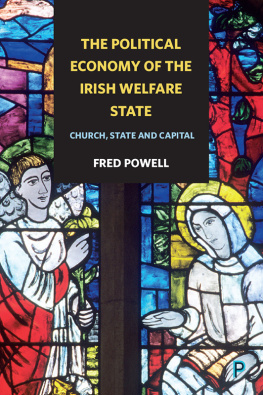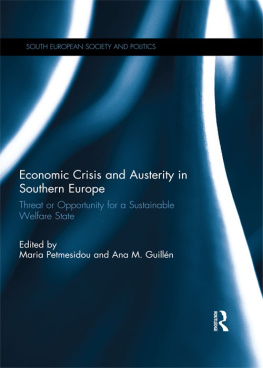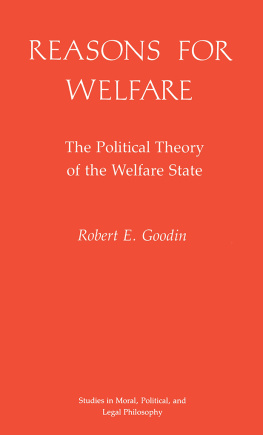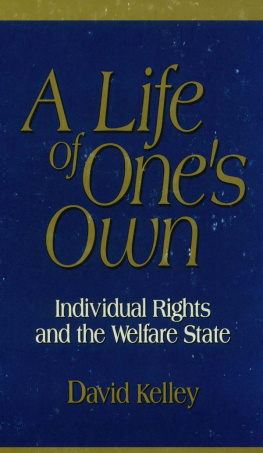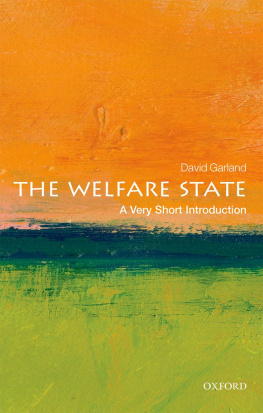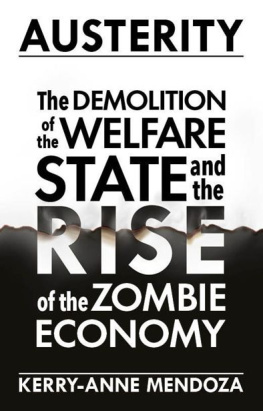Contents
Guide
Pages

This book argues that sustaining humane welfare states is a matter of political will. Modern welfare states face many challenges from neo-liberalism, austerity, globalization, population ageing and the emergence of new social risks. None of these challenges is insuperable. The real question is whether the political solidarities on which the welfare state was founded can be renewed in a more open and unequal world.
Peter Taylor-Gooby, University of Kent
At moments of great economic uncertainty and social insecurity, it is wise to count ones blessings. In this marvellously concise and timely essay Andrew Gamble, one of Britains most prolific political commentators, steers clear of nostalgia. There is no ground for retrospective ill fares the land melancholia. Capitalism, democracy and modern welfare provision can only prosper in sync. The welfare state is an integrative institution not a divisive one. But this general lesson requires a strong reformist political commitment to invest in a future-oriented social infrastructure for rich twenty-first century capitalist democracies. This political commitment cannot be taken for granted at a time when many citizens and politicians wrongly believe that the welfare state era is over. Sobering but extremely important reading for all who care.
Anton Hemerijck, VU University Amsterdam and the London School of Economics and Political Science
Global Futures Series
Mohammed Ayoob, Will the Middle East Implode?
Christopher Coker, Can War be Eliminated?
Howard Davies, Can Financial Markets be Controlled?
Jonathan Fenby, Will China Dominate the 21st Century?
Joseph S. Nye Jr., Is the American Century Over?
Jan Zielonka, Is the EU Doomed?
Andrew Gamble
Can the Welfare State Survive?
polity
Copyright Andrew Gamble 2016
The right of Andrew Gamble to be identified as Author of this Work has been asserted in accordance with the UK Copyright, Designs and Patents Act 1988.
First published in 2016 by Polity Press
Polity Press
65 Bridge Street
Cambridge CB2 1UR, UK
Polity Press
350 Main Street
Malden, MA 02148, USA
All rights reserved. Except for the quotation of short passages for the purpose of criticism and review, no part of this publication may be reproduced, stored in a retrieval system, or transmitted, in any form or by any means, electronic, mechanical, photocopying, recording or otherwise, without the prior permission of the publisher.
ISBN-13: 978-0-7456-9877-9
A catalogue record for this book is available from the British Library.
The publisher has used its best endeavours to ensure that the URLs for external websites referred to in this book are correct and active at the time of going to press. However, the publisher has no responsibility for the websites and can make no guarantee that a site will remain live or that the content is or will remain appropriate.
Every effort has been made to trace all copyright holders, but if any have been inadvertently overlooked the publisher will be pleased to include any necessary credits in any subsequent reprint or edition.
For further information on Polity, visit our website: politybooks.com
In memory of my mother and father,
Joan Westall, 19192015
Marc Gamble, 19142007
Introduction
Can the welfare state survive? Yes, I think it can. It might seem strange even to pose the question. Western societies have grown steadily richer and safer over the seventy years since the Second World War. The establishment and extension of welfare states over this period has been one of the proudest achievements and most obvious fruits of Western prosperity. It is one of the features which makes rich societies distinctive. Pooling collective risks over the life-cycle, redistributing between the generations to provide a better, more secure existence for everybody, alleviating poverty who can be seriously opposed to that? Yet all is not well with our welfare states. The richer we become, the less willing and able we seem to be to pay for them. We hear constantly of underfunding, of a looming crisis of entitlements, of costs escalating and service standards slipping. For many decades now, welfare states of all kinds have been under siege, even in times of prosperity and economic growth. Their era of expansion came to an end in the 1970s, and since then they have entered an era of permanent austerity. There have been constant complaints that welfare states are becoming unaffordable, are wasteful and inefficient, and are in need of drastic reform. During the 1990s, far-reaching reforms were launched which seemed for a time to offer them a new political foundation. But since the financial crash in 2008 and its troubled aftermath, they have had to confront a new era of retrenchment and austerity. New struggles have erupted over which welfare programmes should be protected and which should be axed or scaled back, and there are those who dare to think the unthinkable and wonder whether we need a welfare state at all. Is the welfare state out of time, a relic of the industrial capitalist past, which may once have had its place, but increasingly jars with the political economy of the twenty-first century and should be dismantled?
What do we mean by welfare? The Oxford English Dictionary defines it as the state or condition of doing or being well; good fortune, happiness or well-being; prosperity. Well fare you in the sixteenth century meant May it go well with you. Everyone wants to fare well, to have opportunities, good health and education, to enjoy protection against the risks of being unable to earn a living through ill health, injury, or unemployment, and to have access to the basic resources needed to live a full life. But why do we need the state to be involved? This is where the controversy lies. The role of states in providing welfare has taken different forms, which explains why the American definition of welfare is very different from the European one. In the United States, welfare is defined narrowly to mean income transfers or direct services which support the poor and give them a minimum standard of living. For Europeans, welfare is defined broadly to include not just redistribution to the poor, but also spending to pool collective risks and to provide investment in the human capital of all citizens. It therefore includes spending on health, education, and pensions. If the welfare state is understood only to concern the poor, the majority of citizens will have no stake in it, but they will have a very big stake if it includes the mainstream services which all citizens use at different stages of their lives.
In exploring whether the welfare state can survive, I will use the broad rather than the narrow definition of welfare. Welfare states as they have evolved have come to be concerned with much more than just providing a safety net. Pinning down what is meant by a welfare state is important because it affects the definition of survival. If measured purely by spending, the welfare state appears to be in rude health, even in the midst of austerity and cuts. But these aggregate figures often do not reflect qualitative changes in the way welfare states operate. Welfare spending may be as high as ever, but what comfort is that if welfare states no longer protect citizens against risks in the way they once did, or if they are becoming much more punitive to the poor? In an era of retrenchment, welfare states are put under extreme pressure. This raises the interesting question: at what point does the welfare state cease to be a welfare state? This question is part normative and part empirical. The normative part is whether the welfare state should survive, meaning whether it deserves to survive, which is separate from the empirical question of whether it will survive. You can argue, as many market libertarians do, that the welfare state should not survive, while concluding gloomily that it very probably will, because the political obstacles to dismantling it are too great. Among supporters of the welfare state, there are those like Paul Pierson, who fears it is unlikely to survive for much longer because the very features which made it so resilient in the past have also made it virtually incapable of reform, and now very vulnerable in the new circumstances that have emerged in the aftermath of the financial crisis. I agree with Hemerijck. The welfare state can survive, but only if some of the key challenges which it faces are addressed through a new politics. Its survival is not guaranteed or certain, but it is possible.

